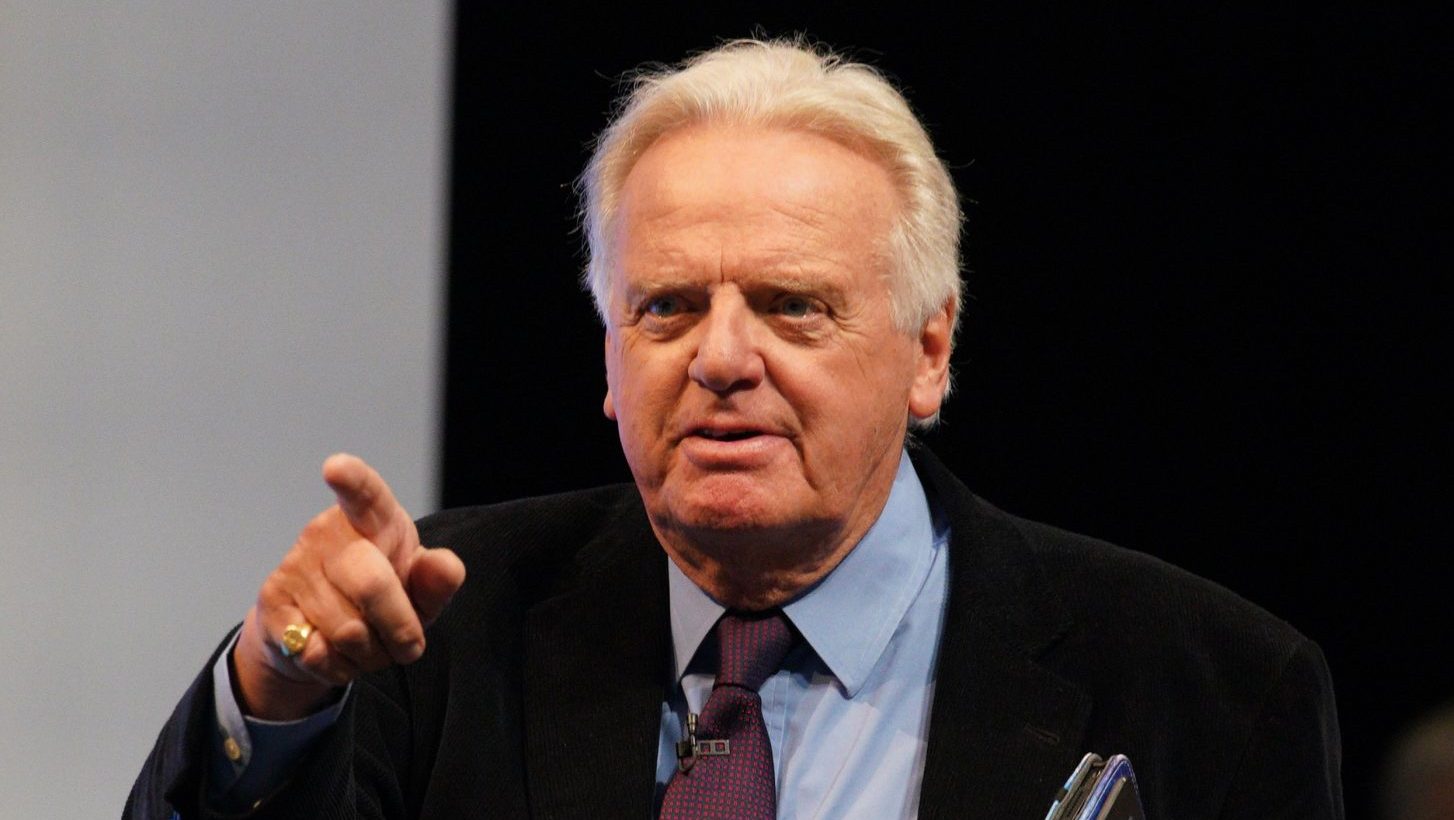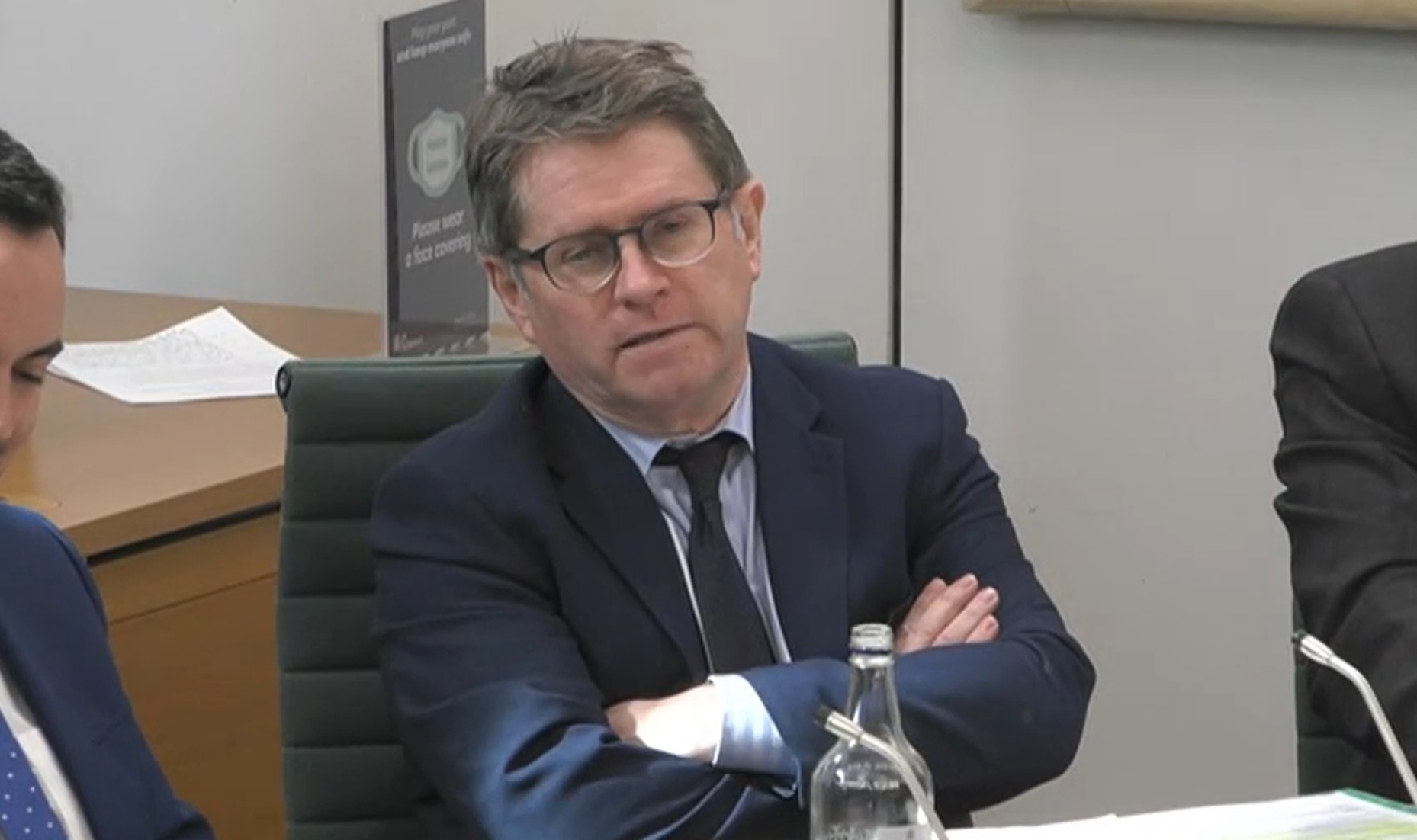Mandrake (TNE #286) rightly highlights that Conservative peer Lord Michael Grade is unsuitable to act as Ofcom chair. His appointment is followed by that of former Tory parliamentary candidate Orlando Fraser to chair the Charity Commission, despite a scrutiny committee rejecting his application.
Recently, six Tory donors who between them contributed more than £3m to the party have been appointed to the boards of the National Gallery, the National Portrait Gallery, the Tate and the British Museum.
This is a scandal. How shameful and how damaging for the country, that a party that bleats about a takeover of cultural institutions and watchdogs by a so-called woke elite is actually engineering a takeover by its own supporters.
Together with even more dangerous parliamentary moves – the stacking of the Lords with Tory peers, the demand for voter ID at elections – this sort of thing is right out of the Republican playbook in the USA. The worst may be yet to come.
Sally Moore
Cardiff
Mandrake asks, “Just how suited is the 79-year-old Lord Michael Grade for the role of Ofcom chair?” Grade has described the Beeb’s coverage of Partygate as “gleeful and disrespectful”; so well suited as far as the Conservatives are concerned.
Harry Pennington
Via Facebook
Grade is a bad choice, but better than Paul Dacre.
Lara Franklin
Via Facebook
Export woes Jonty Bloom asks (TNE #286) “Has Britain had enough of exports?” No, we’ve had enough of Brexit, its red tape and its associated financial ruin.
Graeme Brown
Via Facebook
The bottom line about exports is this: Is it easier to sell, transport goods and create a relationship with someone next door or thousands of miles away?
Paul Andrews
Via Facebook
Divided isles
Paul Mason (“What divided Britain can learn from Ukraine’s positive patriotism”, TNE #286) asks what kind of offer Irish constitutional nationalism and indeed republicanism can make to parts of the Unionist community moving away from sectarian politics.
The Good Friday Agreement acknowledges the specificity of both communities, whether in a UK or a united Ireland context. Irish reunification offers Unionists who want it a way of rejoining the EU, recovering their European citizenship, direct representation in the European parliament and full participation in all EU institutions.
Northern Ireland civil servants could participate in the work of the Irish delegation, Northern Ireland politicians could represent Ireland in the various ministerial councils setting EU policy, or even hold the Irish commissionership from time to time. Northern Ireland judges could serve in the European court. Nothing remotely like this would be possible if Northern Ireland remained in the UK.
Paul Mason also writes, “the real story of how we, the English, Scots, Welsh, Irish and self-identified Brits form a united nation will have to be improvised from below”. My relations living in Ireland today do not have the slightest sense of being British, nor the slightest desire to become British. They are not part of Paul Mason’s “we”. The Irish are no more British than the Ukrainians are Russian.
Ed Kelly
St Helens, Merseyside
The Tories keep proclaiming that the Northern Ireland Protocol they themselves negotiated is totally unacceptable, while it is seen as the best possible outcome, short of ditching Brexit totally, by the majority of those who actually live there.
Meanwhile, in Scotland, over 70% of our population aged under 45 are in favour of independence and the demographic clock has reached the point where that translates into an overall and growing majority. We voted Remain even more emphatically than Northern Ireland, but unlike them, we were given no compromise but were simply dragged out of the EU against the will of the voters in every single one of our electoral areas, and that is not something we are prepared to put up with.
Wales, and indeed increasingly Greater London also, looks at the corruption and incompetence at Westminster and thinks that they can surely do better than this.
Ian Anderson
A clever plot?
James Ball’s Deconstructed (“Get Rishi out to help out”, TNE #286) makes pertinent points. This Spring Statement appeared to have no green shoots whatsoever, just a few token gestures and, as Ball states, nothing for people on Universal Credit and benefits.
Like James, I wonder about Sunak’s modus operandi. The Machiavellian idea that Ball outlines – that in May “a bad enough set of local results might prove the final straw for Conservative MPs, leading to a challenge on Johnson” – might have some substance.
Judith A. Daniels
Cobholm, Great Yarmouth
Cruel spring
Nigel Warburton quotes TS Eliot’s description of April as “ the cruellest month” as he considers the capricious uncertainties of spring (Everyday Philosophy, TNE #287).
But as we look at what is happening here in the UK and in Eastern Europe, I wonder whether WB Yeats might be a more appropriate poet of choice, and his The Second Coming as more accurately reflecting our fears and concerns about events at home and abroad. Whether it is Vladimir Putin invading a sovereign country or Boris Johnson destroying the reputation of this country, there is certainly enough bad stuff going on around us to encourage the thought that things are falling apart, and that anarchy is being loosed upon the world.
And I guess that, if we were forced to decide which one of those two might be described as the rough beast slouching towards Bethlehem, it could be a close call. All in all, it is a sad fact that, at the time of year when hope and revival should be in our thoughts, the (very different) actions of Putin and Johnson conspire to put us in an apocalyptic mood.
Barry Neale
Letchworth Garden City, Hertfordshire
Not just TS Eliot for the “cruel” spring. I’m immediately reminded of Rupert Brooke’s Spring Sorrow: “All suddenly the wind comes soft, And Spring is here again; And the hawthorn quickens with buds of green And my heart with buds of pain.”
Peter Wilton
Via Facebook
German greats
Boris Becker (Germansplaining, TNE #286) is Germany’s Paul Gascoigne. Both possessed incredible talent and created moments that will be remembered long after their weaknesses are forgotten.
They have been agents of their own misfortune, but they have also been exploited by tabloid newspapers and by a public that fails to understand that being a great man in one form does not mean you will be a great man in all of them.
Neil Daley
Tanit Koch on Boris Becker reminds us that you can be both a lovely tennis player and a sad man.
Jane Duncan
Via Facebook
In “Germansplaining: German cuisine” (TNE #285), Tanit Koch misses one dish that is common to Germany and (parts of) the UK: “lobscouse”, or as it was known in the 19th century North German coastal region “labskaus”.
I tested this around 2004 when I had a meeting in Bremen and one evening ordered “Ein lobscouse, bitte”, without checking even whether it was on the menu. The waiter accepted the order without question: the dish was made with chopped sausages, mashed potato, cabbage and sauce, and was excellent.
It is thought that it spread to the UK, and especially Liverpool, via the sea trade between these places, but doesn’t seem to have found a place in other parts of the UK.
David Cockayne
Lymm, Cheshire
While I would agree with much of what Tanit Koch wrote – particularly that the best food is found in the south – I cannot let her suggestion that Saumagen should be avoided go unchallenged.
Conceptually it is closely related to haggis, ie an animal’s stomach stuffed with a well-seasoned blend of carbohydrate and protein. Since the home of Saumagen is the Pfalz and the Hunsrück, and since these are known for the quality of their potatoes, the main ingredient of Saumagen is potatoes, with added chopped meats, smoked and unsmoked, and spices.
Like haggis, too, the best place to buy Saumagen is from a specialist butcher in the Pfalz or the Hunsrück. Unlike haggis, Saumagen is normally served in slices about 1cm thick, which are fried, so that the skin and the outer surface become crisp, while the inside remains succulent.
To everyone I would say, visit a Weinfest in the Pfalz and order Saumagen with a large glass of local wine. You will not regret it!
Russell Hafter
King’s Sutton, Banbury
Without peer
Alastair Campbell (Diary, TNE #284) reminisces about trying to persuade Delia Smith to accept a peerage in the 1990s. Tony Blair was then on the lookout for new Labour peers.
Around that time I remember being mystified that a Labour council colleague of mine was suddenly elevated to the House of Lords for no obvious reason – especially as some of his views on women and gay people were not exactly enlightened.
It did make me question the judgment of whoever selected him.
I think my misgivings were correct, since that so-called noble lord has since been jailed.
Barbara Boyce
York
More hot air
Huge delays at Dover yet again (they happen all the time, as we know, thanks to Brexit). All down to bad weather and a shortage of ferries, according to Natalie Elphicke.
Presumably, there’s also a shortage of ferries at Manchester airport, and of course the weather there is notoriously bad… no mention of the staff shortages, Brexit paperwork, passport and other document checks.
You can’t accuse others of denying the truth and misleading their citizens when you consistently do it yourself.
Phil Green
Grant Shapps’ recent appearance on Sky News’ Sophy Ridge show reminds us of the relentless thought leadership of the right-leaning factions of the Tory party. After the business secretary, Kwasi Kwarteng, announced a massive drive towards renewable energy, Shapps sounded a note of caution that wind farms are an “eyesore”.
Yes, we need to reduce dependence on Russian gas to hinder Putin’s war of aggression. Of course, we would have needed to reduce dependence on Russian gas anyway, because, you know, the world is confronted with the existential threat of climate change. But Shapps thinks wind farms are an eyesore, so perhaps we have our priorities in the wrong place!
Extending his logic to the might of British industry, presumably those factories whose ungainly bulk offers no visual pleasure ought to go the way of the wind: down with the last vestiges of UK manufacturing! And what of the M6 bypass between Slough and Reading, whose grey form is a scar across the beatific loveliness of the Thames Valley?
Let us ensure the aesthetic dog wags the industrial tail. The triumph of Brexit! The scourge of cosmopolitanism, look upon Shapps’ work, ye mighty, and despair!
Jude Wilkinson
Coventry



